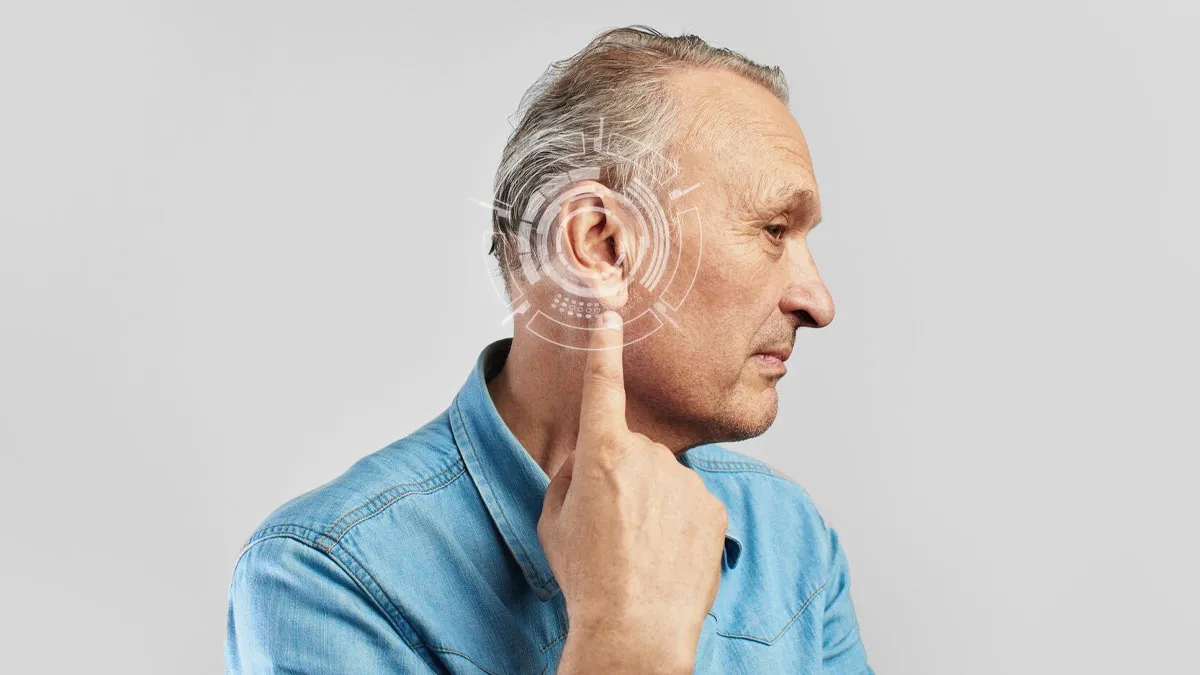
For many of us, losing our hearing feels like a natural part of ageing, something we can ‘get by’ with, maybe just by turning up the TV volume or asking people to repeat themselves. But what if those unheard words carried consequences far beyond sound? Research now shows that untreated hearing loss doesn’t just affect communication; it may quietly chip away at memory and mood and even increase the risk of dementia. The link is subtle yet powerful, and it’s changing the way doctors, caregivers, and families think about hearing health.
Table of Content:-
Why Hearing Loss Is More Than Just ‘Not Hearing’

“Hearing loss is more than just a sensory change; it’s increasingly recognised as a modifiable risk factor for dementia. Research shows it may contribute to cognitive decline through several interconnected pathways: the extra cognitive load of decoding unclear sounds, the social withdrawal that often follows communication difficulties, and structural brain changes, such as accelerated atrophy in auditory and memory-related regions.
"Hearing-impaired individuals are also more likely to withdraw from social engagement. Social isolation and depression are both risk factors for dementia, says the Alzheimer's Society."
According to the Johns Hopkins Bloomberg School of Public Health, hearing loss can make the brain work harder, forcing it to strain to hear and fill in the gaps. And that's at the cost of other thought and memory systems. Additionally, hearing loss may also lead people to be less socially engaged, which is crucial for remaining intellectually stimulated.
Hearing-impaired individuals are also more likely to withdraw from social engagement. Social isolation and depression are both risk factors for dementia, according to the Alzheimer's Society.
“In my work, I’ve seen how this plays out. One resident gradually stopped participating in group activities, not because she lost interest, but because she struggled to keep up with conversations. This isolation, coupled with the brain’s constant effort to “fill in the blanks”, coincided with noticeable changes in her memory and mood,” said Neha Sinha, Dementia Specialist, CEO and Co-founder, Epoch Elder Care.
Also Read: The Silent Consequences: How Hearing Loss And Social Isolation Affect Memory
The Hearing–Memory Connection
Hearing and memory are linked because the brain needs clear sound input to store information effectively. If hearing is poor, the brain has to work harder to “fill in” missing sounds, leaving fewer resources for forming strong memories. Over time, this extra strain, plus social withdrawal, is associated with faster cognitive decline and a higher risk of dementia.
"I've seen many elderly patients come to my clinic for hearing problems, and their families often mention memory loss as well. When hearing fades, conversations become harder, and people tend to withdraw from others. This lack of social connection can exacerbate memory and thinking problems. Caring for hearing is not just about ears; it's about keeping the mind alive," said Dr Supriya Mohite, Master in Audiology and Speech-Language Pathologist, Owner and Founder, Hear-It Hearing and Speech Clinic, Kharghar, Navi Mumbai.
Also Read: Reduce Your Risk of Dementia: Expert Shares CDC-Identified Factors to Watch Out For
The Emotional Toll: Isolation, Confidence, and Mental Health

“When there is hearing loss, processing, comprehending, and delivering information also take time, and sometimes they're even incomplete. Additionally, it takes more energy for the brain to process information, leading to social isolation and loss of confidence. This can also result in depression, and prolonged depression can increase the risk of dementia,” added Priyanka Kapoor, Psychotherapist, psychologist, Sex Therapist, Couple and Family Counsellor, South Mumbai.
The structure of the brain changes; most of it shrinks when it is not used in processing or comprehending. People at risk of dementia, if hearing aids are used, can maintain their social life and continue using their intelligence and abilities to comprehend new information. This also positively impacts mental health and self-esteem, which slows down cognitive decline.”
Bottomline
Sinha concluded, “Hearing isn’t simply about perceiving sound; it’s about staying connected, engaged, and mentally stimulated. Every unheard word is a missed opportunity for the brain to remain active. The good news? Protecting communication and probably slowing cognitive decline may be possible by expediently acting on hearing loss, with such interventions as hearing aids that are properly fitted, reduction of background noise, or assistive listening devices. We don't restore just sound; we conserve precious moments, relationships, and the brain's resilience against dementia.”
[Disclaimer: This article contains information provided by an expert and is for informational purposes only. Hence, we advise you to consult your professional if you are dealing with any health issue to avoid complications.]
Also watch this video
How we keep this article up to date:
We work with experts and keep a close eye on the latest in health and wellness. Whenever there is a new research or helpful information, we update our articles with accurate and useful advice.
Current Version
